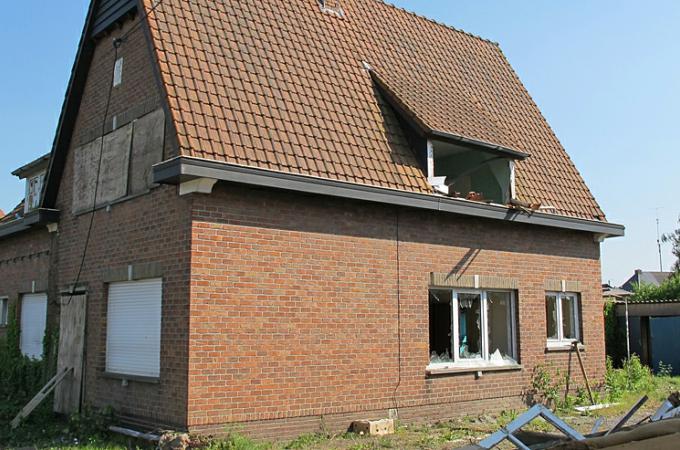Evicted: The housing crisis in the U.S.
My husband and I are sitting on our front porch on a gentle spring evening, reading.
I hold up my book and show Jim Chapter 6: "Rat Hole."
"This pretty much sums up this book," I say, and silently thank God for my house, my neighborhood, my life. Simultaneously, I grieve for my country.
I am reading "Evicted: Poverty and Profit in the American City," by Harvard sociologist Matthew Desmond, which won the 2017 Pulitzer Prize for nonfiction. If you thought you knew how bad America's housing crisis is, read this book and think again.
At the same time I was making my way through this harrowing chronicle of cockroaches, clogged toilets, broken windows, filthy carpeting and people's every possession being thrown to the curb in repeated evictions, I watched a program on Public Broadcasting Service's Frontline that aired May 9. Called "Poverty, Politics and Profit," it's a combined investigative piece by National Public Radio and Frontline.
It, too, explores the housing crisis in America. This may be the worst housing crisis we've seen in this country's modern era, and as with so many bad things, the horrors are falling chiefly on the poor.
More than that, the lack of affordable housing is causing poverty. The majority of poor renting families pay half or more of their income on rent. Desmond writes, "We have failed to fully appreciate how deeply housing is implicated in the creation of poverty."
Every year, said Frontline, 2.5 million people are evicted nationally. Rents are going up as wages stagnate. Part of this is a result of the 2008 recession, which pushed millions out of their homes and into the rental market due to foreclosures.
Desmond's book chronicles the lives of eight families in Milwaukee from 2008 to 2009. Rather than dry statistics, it's a heartbreaking tale of people spending just about everything on rudimentary and virtually unlivable shelter. There's money in being a slumlord, and Desmond introduces you to some of them, too.
Frontline tells us about two government programs that are supposed to be helping. One of them is popularly called "Section 8," in which the government subsidizes the rent over and above what someone can reasonably be expected to pay. The problem: such a lack of available Section 8 housing that only 1 in 4 eligible folks are able to benefit, and the waiting list is years long.
The other program is less well-known: The Low-Income Housing Tax Credit is a federal program providing billions of dollars to states to issue tax credits for the acquisition, rehabilitation or new construction of rental housing targeted for use by the poor. This tax credit gives developers an incentive to develop low-income housing, and some great projects have resulted.
Alas, fraud has resulted as well. Frontline and NPR examine the millions of dollars of fraud discovered in South Florida alone. Supporters worry that the scrutiny resulting from these fraud cases will destroy what was essentially a good idea.
But some, like Senator Chuck Grassley of Iowa, see the need for much greater oversight. There have been, he told Frontline, seven audits of the program in 29 years. Yes, only seven audits of a program worth billions per year -- an invitation to abuse.
Meanwhile, the poor suffer.
What can we do? We can urge our representatives to support the tax credit program, but demand far better oversight and auditing. Without fraud, this program could be producing many more affordable units to confront an American emergency.
Then, visit justshelter.org to learn what's going on in your area and how you might help.
- Effie Caldarola is a columnist with the Catholic News Service.



















